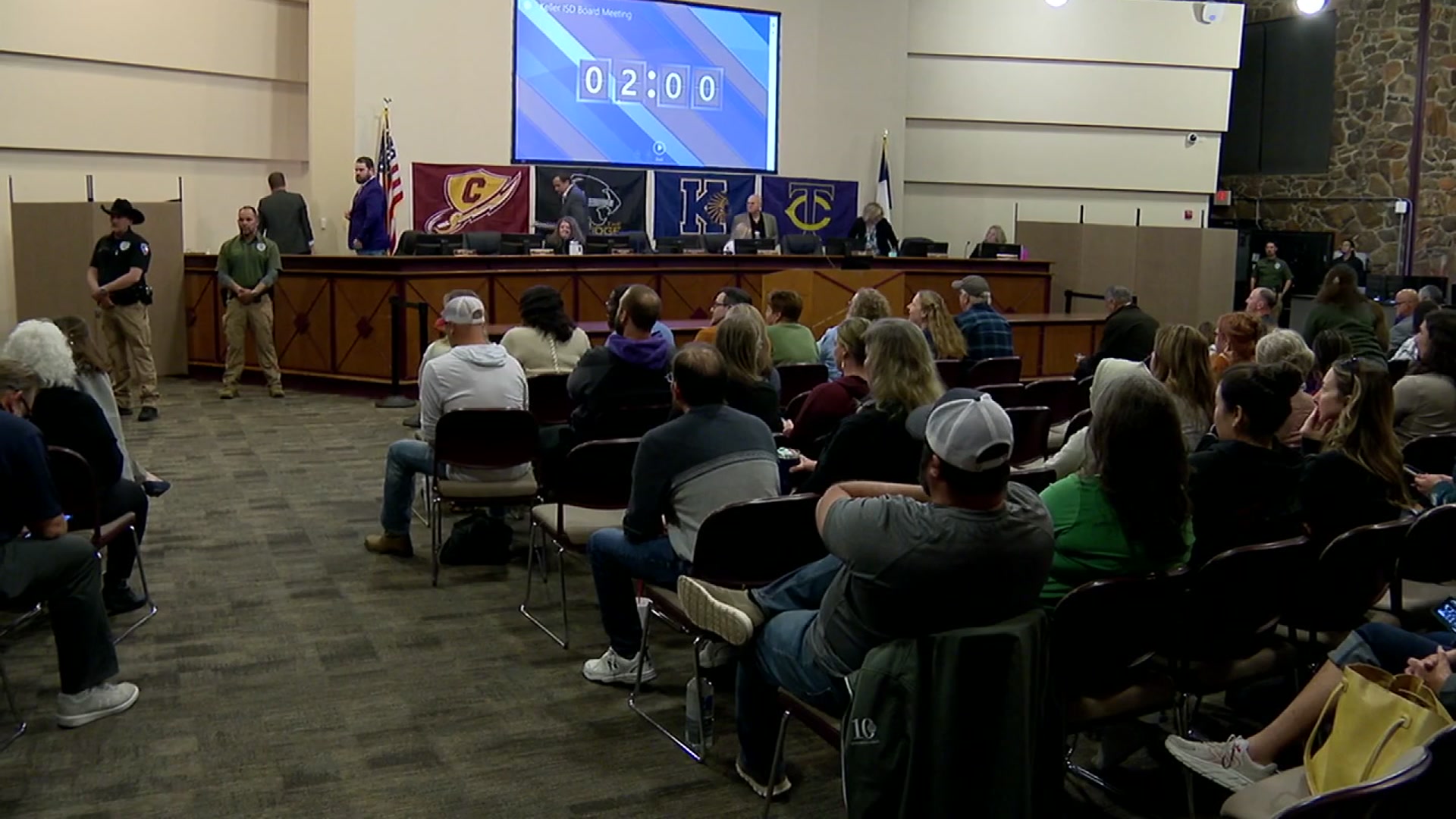NBC 5 Responds Is sharing the story of a local Vietnam veteran. For years, he has tried accessing his military benefits but the family says his dishonorable discharge is complicating their efforts. The family believes he’s lived a lifetime with PTSD and they want to get him the care they say he deserves. Now some five decades after returning from the war zone, the family is sharing their experience — in the hopes the military will take another look.
NBC 5 Responds to the family of a Vietnam veteran trying to access military benefits.
The family said the former service member’s discharge from the Marines complicated their efforts. They believe their veteran was experiencing PTSD.
Five decades after returning from a war zone, they’re asking the military to reconsider.
'I’VE NEVER BELIEVED HIS DISCHARGE WAS RIGHT'
Get top local stories in DFW delivered to you every morning. Sign up for NBC DFW's News Headlines newsletter.
With help from his wife, Barbara, and other family, 77-year-old Steve Ballew managed his care at home.
“He's fallen a lot where I have to pick him up,” said Barbara Ballew.
“I can't stand any time. It really makes it hard on her and me both,” added Steve Ballew.
Local
The latest news from around North Texas.
Diagnosed with Parkinson’s disease, Ballew said he wasn’t able to access full military health care benefits – pointing to an “undesirable discharge” from the Marines in 1970.
“I've never believed his discharge was right. I always told him that he should have got a medical discharge,” Barbara Ballew said.
According to military records the family shared with NBC 5 Responds, Ballew was first hospitalized after losing part of his finger during combat in Vietnam. Later, records showed he was sent to a U.S. Naval Hospital in Yokosuka, Japan after suffering nightmares.
“I was having these nightmares so bad that they were afraid I was going to shoot some of them or myself,” Steve Ballew recalled. “They were the ones who requested me to leave and that's what I did.”
The military sent Ballew back to the U.S. on limited duty. According to the records, his military career ended after leaving base without permission for five months. The records say Ballew agreed to an undesirable discharge in 1970 to avoid court martial. He was 23 years old at the time.
Barbara believes Steve suffered from PTSD. Back then, it wasn’t recognized as a diagnosis. The American Psychiatric Association added PTSD to its Diagnostic and Statistical Manual of Mental Disorders in 1980.
“One time, he thought the house was burning down and he picked me up and then grabbed the other three kids in his arms and was going to run up if the house was burning,” Barbara said.
The Ballews told NBC 5 Responds they recall verbally asking about veterans' benefits in the past. They said they didn’t apply because of the other than honorable discharge.
'IT GOT PERSONAL'
“The more I've seen his situation, the more it hurt my heart,” said the Ballew’s son-in-law, Steve Bunker.
“It got personal.”
Bunker, also a veteran, asked the Veteran Benefits Administration to review Ballew’s records and determine if he’s eligible.
Last fall, the family connected with NBC 5 Responds as Ballew’s health worsened.
“I knew that his time was running out [with] the stage he's at,” Bunker said.
We asked the Department of Veterans Affairs about Ballew’s request. The VA responded and said after its Waco Regional Benefits Office completed an expedited review, Ballew would receive health care benefits for a handful of conditions connected to military service – including Parkinson’s and PTSD. With the new ruling, the VA North Texas Health Care System in Dallas would connect Ballew with a physician and social worker to develop a treatment care plan.
When it came to compensation benefits, the VA said Ballew was not currently eligible because of his discharge status and it encouraged him to continue to work through the military to request a change.
Generally, the VA says it can review records of a service member with an other than honorable discharge to determine if the VA can provide benefits.
It can’t change the military’s discharge characterization. For that, a service member would have to go to a military Discharge Review Board or Boards of Correction for Military Records.
FAMILY ASKS THE MILITARY TO RECONSIDER
Even if you haven’t served in the military, you may recognize the terms “honorable” or “dishonorable discharge."
There are additional characterizations in between - including “other than honorable” or as it used to be called “undesirable."
An other than honorable discharge, sometimes referred to as “bad paper", can prevent a service member from accessing the full range of benefits from certain health care to loan programs. An other than honorable discharge is an administrative discharge that doesn’t involve a court martial. So, misconduct wouldn’t have been proven in military court.
“There is this huge range where service members are lumped together as receiving these bad paper discharges for some things that are really very, very bad. And some are things that, if it happened in the civilian world, wouldn't be punished at all,” said Dana Montalto with the Veterans Legal Clinic at Harvard Law School.
Montalto is not directly involved in Ballew’s case. She works with veterans, asking the military to change their discharge characterization. Some request an upgrade over circumstances like a mental health condition, traumatic brain injury, military sexual trauma or discrimination.
This past September, the Department of Defense announced it would proactively look for upgrade-eligible vets discharged under the now-repealed “Don’t ask, Don’t tell” policy.
Montalto said it’s an example of the kind of outreach she said is needed to help vets in need of a meaningful review of their less than honorable discharges, “You could imagine them doing something like that in a broader context around mental health or racial discrimination.”
When we met the Ballew family last fall, they’d already asked the military to consider Ballew’s PTSD symptoms and change his discharge characterization.
In response to their application, the family said the military provided an advisory opinion in May written by a psychologist to the Board for Correction of Naval Records. The psychologist writes that Ballew’s records show evidence of mental health conditions exacerbated by military service, but there’s insufficient evidence to attribute the misconduct, unauthorized absence, to a mental health condition.
The letter said that in 1969, Ballew told the military he’d had nightmares since he was 16. It also said Ballew had a history of unauthorized absences before seeing combat.
Ballew’s family said the pre-combat unauthorized absences happened when Steve left to financially support his parents because his dad was a double amputee.
“Regardless of everything that happened in the first or the second paragraph, they still choose to send him to Vietnam in September of 1968,” said Bunker of the advisory opinion.
“He didn't come back the same as he when he left,” said Bunker of his father-in-law’s time in combat. “The people who knew him prior to that can attest to that.”
For the Ballew’s case, the Department of Defense referred NBC 5 Responds to the Navy which said a review was ongoing.
MILITARY BURIAL REQUEST
A few weeks after our interview, Steve Ballew died on December 10. His family wanted a military burial. The family asked the BCNR to reconsider and upgrade Ballew’s discharge. This time, they applied with help from Margaret Kuzma, an attorney with the Veterans Legal Clinic at Harvard Law School.
“Kind of the last-ditch effort that we had to try to get him expeditiously upgraded so that he could be buried in a veterans cemetery,” Kuzma said.
December 18, the Board for Correction of Naval Records denied Ballew’s discharge upgrade. The family shared the denial letter which said, in part, that the board considered factors like Ballew’s company commander in the Marines describing Ballew as a “very hardworking, conscientious marine."
The letter said, ultimately, the length of Ballew’s unauthorized absences could only be characterized as undesirable.
“It cut him out of the GI Bill, it cut him out of all medical care until the very last year of his life, when the VA finally said, this is service-connected, so we'll give you care, but no money,” Kuzma told NBC 5. “Even at the time of his death, he couldn't be buried. So, the only person who was hurt here was him. I feel like we're still hurting him because of it.”
Kuzma said she’ll help the Ballews try again. The family said they intend to press on with Steve Ballew’s final wishes.
“Any human being that has stepped foot on foreign soil and had bullets flying at their head deserves whatever care they got coming,” said Bunker.
A Navy spokesperson told NBC 5 Responds by email, “Due to the Privacy Act, we are prohibited on commenting on the case pertaining to Mr. Ballew. We would refer you to the letter from the Board for Correction of Naval Records for any additional details.”
The Legal Services Center of Harvard Law School connected the Ballew family with their attorney. You can find out more about the Veterans Legal Clinic here.
The nonprofit Swords to Plowshares organization has published self-help guides about navigating VA benefits applications and discharge upgrades. You can find them here.
NBC 5 Responds is committed to researching your concerns and recovering your money. Our goal is to get you answers and, if possible, solutions and a resolution. Call us at 844-5RESPND (844-573-7763) or fill out our customer complaint form.
Get top local stories in DFW delivered to you every morning. Sign up for NBC DFW's News Headlines newsletter.



